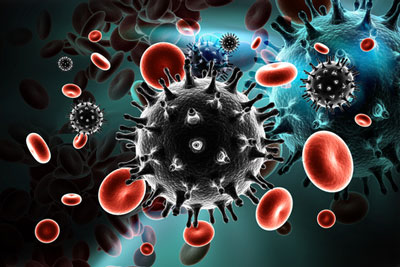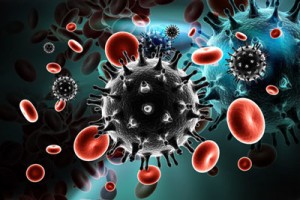Starting antiretroviral treatment early improves outcomes for HIV-infected individuals
Posted: 28 May 2015 |
A trial has found that HIV-infected individuals have a lower risk of developing AIDS or other serious illnesses if given antiretroviral drugs sooner…


A major NIH-funded trial has found that HIV-infected individuals have a considerably lower risk of developing AIDS or other serious illnesses if they start taking antiretroviral drugs sooner.


The trial found that early treatment is more effective when their CD4+ T-cell count is higher, instead of waiting until the CD4+ cell count drops to lower levels. Together with data from previous studies showing that antiretroviral treatment reduced the risk of HIV transmission to uninfected sexual partners, these findings support offering treatment to everyone with HIV.
“We now have clear-cut proof that it is of significantly greater health benefit to an HIV-infected person to start antiretroviral therapy sooner rather than later,” said National Institute of Allergy and Infectious Diseases (NIAID) Director Anthony S. Fauci, M.D. “Moreover, early therapy conveys a double benefit, not only improving the health of individuals but at the same time, by lowering their viral load, reducing the risk they will transmit HIV to others. These findings have global implications for the treatment of HIV.”
“This is an important milestone in HIV research,” said Jens Lundgren, M.D., of the University of Copenhagen and one of the co-chairs of the START study. “We now have strong evidence that early treatment is beneficial to the HIV-positive person. These results support treating everyone irrespective of CD4+ T-cell count.”
The START study, which opened in March 2011, enrolled 4,685 HIV-infected men and women ages 18 and older. Participants had never taken antiretroviral therapy and were enrolled with CD4+ cell counts in the normal range (above 500 cells per cubic millimeter (cells/mm3). Approximately half of the study participants were randomised to initiate antiretroviral treatment immediately, and the other half were randomised to defer treatment until their CD4+ cell count declined to 350 cells/mm3. On average, participants in the study were followed for three years.
Risk of developing serious illness or death was reduced by 53% in the early treatment group
The study measured a combination of outcomes that included serious AIDS events (such as AIDS-related cancer), serious non-AIDS events (major cardiovascular, renal and liver disease and cancer), and death. Based on data from March 2015, the DSMB found 41 instances of AIDS, serious non-AIDS events or death among those enrolled in the study’s early treatment group compared to 86 events in the deferred treatment group. The DSMB’s interim analysis found risk of developing serious illness or death was reduced by 53% among those in the early treatment group, compared to those in the deferred group.
Rates of serious AIDS-related events and serious non-AIDS-related events were both lower in the early treatment group than the deferred treatment group. The risk reduction was more pronounced for the AIDS-related events. Findings were consistent across geographic regions, and the benefits of early treatment were similar for participants from low- and middle-income countries and participants from high-income countries.
START trial offers concrete evidence that all asymptomatic HIV-infected individuals should be given antiretroviral treatment regardless of CD4+ cell count
“The study was rigorous and the results are clear,” said INSIGHT principal investigator James D. Neaton, Ph.D. “The definitive findings from a randomised trial like START are likely to influence how care is delivered to millions of HIV-positive individuals around the world.”
START is the first large-scale randomised clinical trial to offer concrete scientific evidence to support the current US HIV treatment guidelines, which recommend that all asymptomatic HIV-infected individuals take antiretrovirals, regardless of CD4+ cell count. Current World Health Organization HIV treatment guidelines recommend that HIV-infected individuals begin antiretroviral therapy when CD4+ cell counts fall to 500 cells/mm3 or less.



